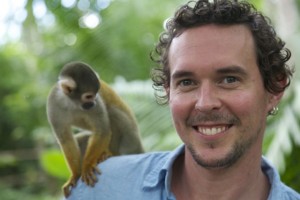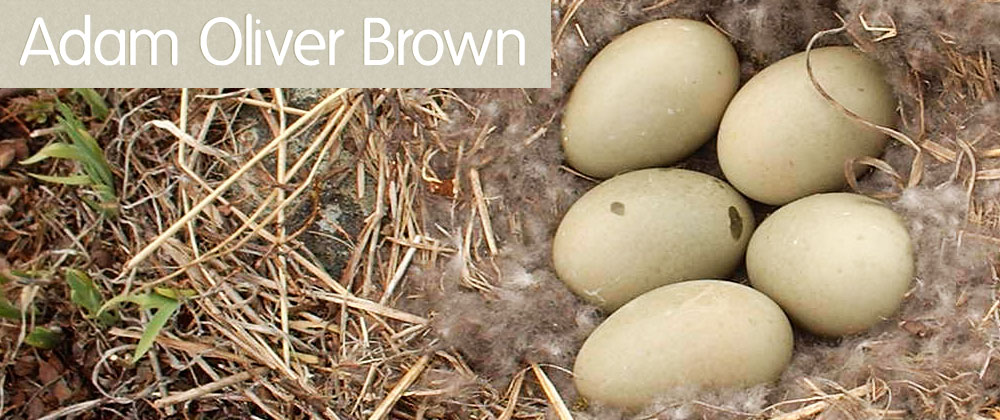
My current research revolves around two aspects of the scholarship of teaching and learning, those of Science Education and Science Communication. In the former, I have developed novel teaching methods and technologies that have been shown to improve the learning environment, knowledge transfer and application for undergraduate students of Biology. My current projects involve analyses of linguistic challenges to learning of science terminology and learning science in non-English languages, as well as a study of the role of exemplification and monologue vs. dialogue discourses in the delivery of science content during classroom lectures. As part of my work related to the field of Science Communication, I have brought an emphasis for the learning of skills for the public communication of science into the curriculum and evaluation of undergraduate students of science. Additionally, I am actively creating, producing, narrating and hosting a number of science communication media productions for TV shows, documentaries and science shows for kids.
My past research program has focused on the factors that influence insect-flower interactions as they relate to berry production in the wild cloudberry (Rubus chamaemorus) and the cultivated cranberry (Vaccinium macrocarpon). More recently, I have had students doing projects in the strawberry (Fragaria vesca) fields around Ottawa and wild blueberry (Vaccinium angustifolium) in the Gatineau Park in Quebec.
By looking at pollinator diversity and activity, pollination effectiveness and importance as well as patterns of fruit set and abortions, my aim is to understand dynamics of ecological interactions in agriculture in order to develop sustainable agro-ecological management techniques. Advances in such research could hopefully lead to lessening the ecological and environmental impact of agricultural practices by reducing habitat destruction and pesticide use. Consequently, native biodiversity can be promoted in agro-ecosystems, which can in turn benefit from the ecosystem services provided by this biodiversity, such as pollination and pest predation/parasitism.
I have also been a lifelong performer (and more recently a teacher) of the arts, having participated in performances of music, dance and theatre to audiences throughout North America and Europe. I feel it is important for me to bridge the gap between the left and right hemispheres of the brain by exploring the art of science and the science of art.
Recent Publications
- (2024) Feeling the heat: undergraduate science students’ emotional management during classroom debates, International Journal of Science Education, Part B: Communication and Public Engagement, DOI: 10.1080/21548455.2024.2316121 (download.pdf)
- Reis, G. Jeelani, M. and A.O. Brown. 2023. “Where is God during a Natural Disaster?” Potential Implications of Public Discourses of Religion for Science Curricula. In: Favio, X. (ed.), Science Curriculum for the Anthropocene, Volume 2: Curriculum Models for our Collective Future. Cham, Switzerland: Palgrave MacMillan Press.
- Oliveira, A.W., Brown, A.O., Carroll, M.L., Blenkarn, W., Austin, B. & Bretzlaff, T. 2023. Biology Students’ Views of Science Communication: A Reflective Approach to Oral Communication in Undergraduate Education. Journal of College Science Teaching. 52: 60-67. (download.pdf)
- Oliveira, A. W., Mirel, O. & A. O. Brown (2023) ‘I invite you to take a sip from the golden fountain and confirm these statements for yourself’: preparing undergraduate science students to publicly address pseudoscientific news. International Journal of Science Education, Part B: Communication and Public Engagement,14:1, 47-71. (download.pdf)
- Oliveira, A. W., & Brown, A. O. (2023). Pitching STEM: a communicative approach to entrepreneurship in STEM classrooms. In Enhancing Entrepreneurial Mindsets Through STEM Education (pp. 325-348). Cham: Springer International Publishing. (download.pdf)
- , , , , , , & (2022). Authorised cheat sheets in undergraduate biology: Using pictographic organisers to foster student creative cognition. Review of Education, 10, e3380. https://doi.org/10.1002/rev3.3380 (download.pdf)
- Oliveira, A.W., Brown, A.O. 2022. Experiencing the entrepreneurial side of science: undergraduate students pitching science-based businesses. Entrepreneurship Education. https://doi.org/10.1007/s41959-022-00087-7 (download.pdf)
- Oliveira, A.W., Brown, A.O., Zhang, W.S., LeBrun, P., Eaton, L. & S. Yemen. 2021. Fostering creativity in science learning: The potential of open-ended student drawing. Teaching and Teacher Education. 105, 103416. (download.pdf)
- Oliveira, A.W., Brown, A.O., Carroll, M.L., Blenkarn, W., Austin, B. & Bretzlaff, T. 2021. Developing undergraduate student oral science communication through video reflection. International Journal of Science Education, Part B: Communication and Public Engagement DOI: 10.1080/21548455.2021.1907630 (download.pdf)
- Reis, G., Brown, A.O., Pedreira, A.J., Delano, S. and B. Jayme. (2019). Evolution as Creationism in Sheep’s Clothing: Challenging Ideals of ‘Normalcy’ and ‘Naturalness’ (pp. 209-236) in Nature and Society. In: Oliveira, A.W. & Cook, K. (Eds.), Evolution Education and the Rise of the Creationist Movement in Brazil. Lanham, MD: Lexington Books. Available on Amazon
- Oliveira, A.W., Bretzlaff, T., & A.O. Brown. 2020. Memorable Exemplification in Undergraduate Biology. Research in Science Education. 50: 625-643 (download.pdf)
- Oliveira, A.W., Johnston, E. & Brown, A.O. 2018. Exemplification in Undergraduate Biology: Dominant Images and Their Impact on Student Acquisition of Conceptual Knowledge. Canadian Journal of Science, Mathematics and Technology Education. 18:1-17 (download.pdf).
- Brown, A.O. 2017. The Role of Values in the Effectiveness of Public Communications of Science for Sustainability. Education Review, 5: 14-17. (download.pdf)
- Oliveira, A.W. and A.O. Brown. 2016. Exemplification in Science Instruction: Teaching and Learning through Examples. Journal for Research in Science Teaching. 53: 737-767. (download.pdf). This manuscript was short-listed as one of 5 articles with Research Worth Reading for 2016 by the USA National Science Teachers’ Association.
- Brown. A.O. 2014. Lexical access, knowledge transfer and meaningful learning of scientific terminology via an etymological approach. International Journal of Biology Education. 3: 1-12. (download.pdf)
- Brown, A.O. 2011. The Biology Undergraduate Student's Guide to Success. Nelson Education. 56p. (view book info here)
- Brown, A.O. and J.N. McNeil. 2009 Pollination ecology of the high latitude, dioecious cloudberry (Rubus chamaemorus: Rosaceae). American Journal of Botany. 96: 1096-1107. (download .pdf)
- Brown, A.O. and J.N. McNeil. 2006. Fruit production in cranberry (Vaccinium macrocarpon Ait.): a bet-hedging strategy to optimize reproductive effort. American Journal of Botany. 93: 910-916. (download .pdf).
- Pelletier, L., A. Brown, B. Otrysko and J.N. McNeil. 2001. Entomophily of the cloudberry (Rubus chamaemorus L.). Entomologia experimentalis et applicata. 101: 219-224. (download .pdf)





